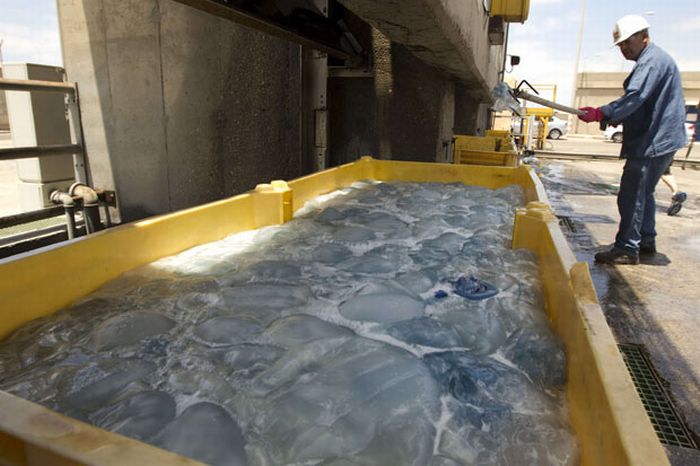|
|
Jellyfish Clog Water Supply, Coal-fired Power Station Orot Rabin, Hadera, Israel
|
Relationship to humans
• Culinary
Only scyphozoan jellyfish belonging to the order Rhizostomeae are harvested for food; about 12 of the approximately 85 species are harvested and sold on international markets. Most of the harvest takes place in southeast Asia. Rhizostomes, especially Rhopilema esculentum in China (海蜇 hǎizhē, "sea stings") and Stomolophus meleagris (cannonball jellyfish) in the United States, are favored because of their larger and more rigid bodies and because their toxins are harmless to humans.
Traditional processing methods, carried out by a Jellyfish Master, involve a 20 to 40 day multi-phase procedure in which after removing the gonads and mucous membranes, the umbrella and oral arms are treated with a mixture of table salt and alum, and compressed. Processing reduces liquefaction, off-odors and the growth of spoilage organisms, and makes the jellyfish drier and more acidic, producing a "crunchy and crispy texture." Jellyfish prepared this way retain 7-10% of their original weight, and the processed product contains approximately 94% water and 6% protein. Freshly processed jellyfish has a white, creamy color and turns yellow or brown during prolonged storage.
|
|









